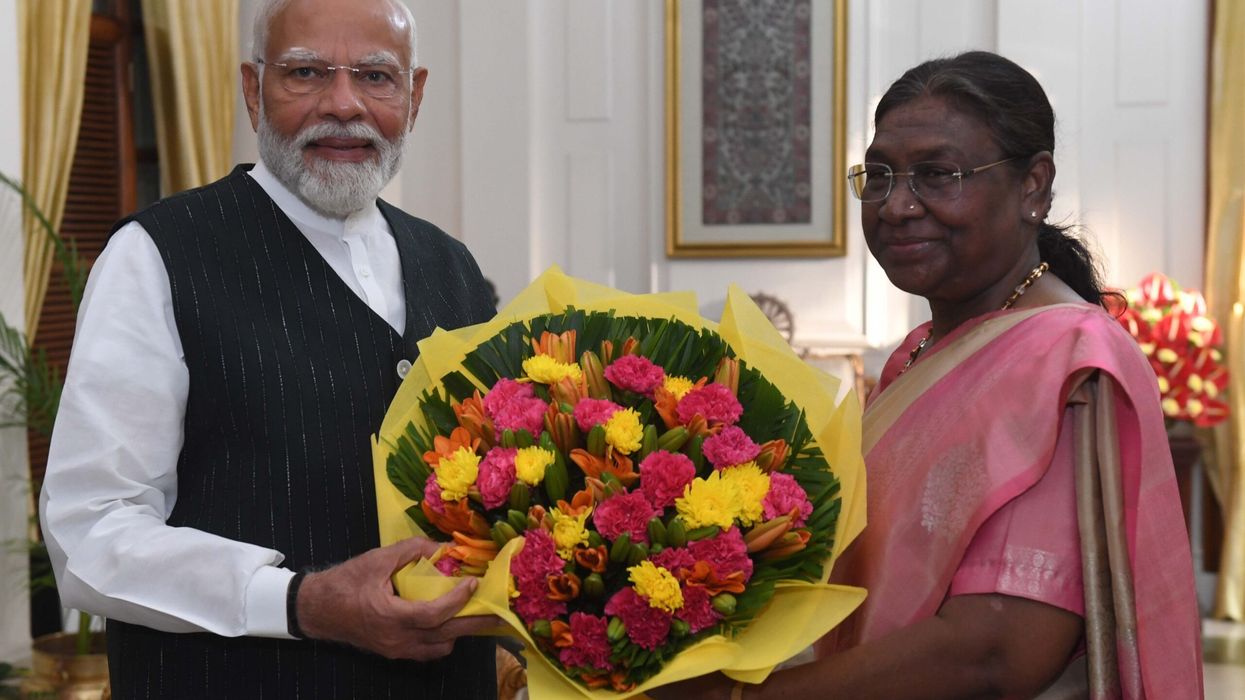Indian prime minister Narendra Modi announced on Friday that president Droupadi Murmu had invited him to form a government. He promised that his new coalition of 15 parties would work towards unanimity and success.
Modi made these comments after meeting with Murmu and accepting her invitation to head the National Democratic Alliance (NDA) coalition government. He will lead the world's most populous nation for the next five years. The new government will be sworn in on Sunday evening, marking Modi's third consecutive term as prime minister.
"I want to assure the people of the country that in the 18th Lok Sabha (lower house) also... we will work with the same pace, same commitment to fulfil aspirations of the people," Modi told reporters outside the President's palace.
This is the first time in a decade that Modi's Bharatiya Janata Party (BJP), which won majorities outright in 2014 and 2019, has needed the support of regional parties to form the government. This shift initially concerned markets and analysts about policy certainty and fiscal discipline.
"It is my good fortune that all of you from NDA have chosen me to lead," Modi said earlier on Friday after NDA lawmakers voted for him to head their coalition. "No alliance has ever been as successful as the NDA," he added, as lawmakers and senior leaders applauded, with some standing and chanting "Modi, Modi!" in the central hall of the old parliament building.
"We have won the majority... but to run the country, it is unanimity that is crucial... we will strive for unanimity," he said, indicating a possible change in governance style due to the coalition government.
Modi stated that the new government would focus on raising the savings of the middle class and improving their quality of life, as "the middle class is the driving force of the country."
NDA leaders vow to stick around
Key NDA leaders, whose support has fluctuated in the past, praised Modi and expressed confidence in his leadership. Nitish Kumar, Chief Minister of the eastern state of Bihar, said, "I am confident that whatever is left he will now complete it. We will be with him at every step."
Indian media reported that Kumar's party, Janata Dal (United), which is the third largest in the NDA with 12 lawmakers, and the Telugu Desam Party, the second largest with 16 lawmakers, are eyeing the post of speaker in the lower house. The BJP is expected to retain four key ministries: foreign affairs, defence, home, and finance.
The Janata Dal (United) also wants the new government to review a military recruitment system introduced in 2022. This system enlists young men and women for a four-year tenure at non-officer ranks, with only a quarter retained for longer periods. Previously, soldiers were recruited by the army, navy, and air force separately, typically serving up to 17 years for the lowest ranks.
The shorter tenure has caused concern among potential recruits and led to riots in some parts of the country, as it was seen as harming employment prospects. A lack of jobs, along with rising prices and falling incomes, were key issues in the election, leading voters to rein in support for Modi, according to a post-election survey.
The coalition negotiations are reminiscent of an era before 2014, when Modi came to power with an outright majority for his BJP.
(Reuters)





